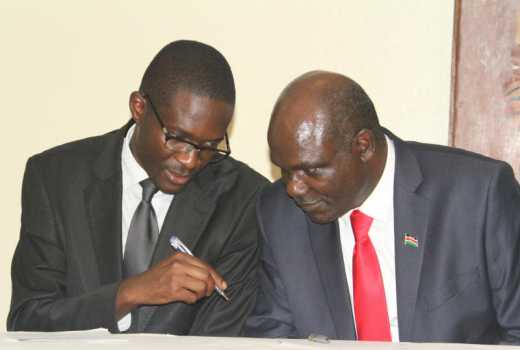×
The Standard e-Paper
Home To Bold Columnists

Internal communication accessed by Sunday Standard has finally lifted the lid on the profound mistrust and unfathomable interpersonal insecurity issues that have brought the electoral commission to its knees.
At the centre of the ring and leading a divided commission is an exceedingly cynical chairman Wafula Chebukati paired against a suave control-freak in CEO Ezra Chiloba, leading a defiant secretariat keen on pushing back.